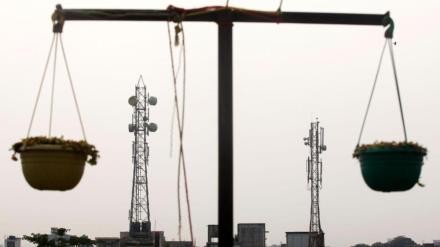The government’s plea in the Supreme Court on administrative allocation of spectrum in limited areas of public interest except mobile services, will not affect the regulatory process for satellite service launch in the country, officials said on Wednesday.
This means that companies such as Bharti-backed Eutelsat OneWeb, Jio Satellite, which are in the forefront of starting satellite Internet services in the country, will not face additional challenges and have to wait only for the regulatory process to get over .
The matter in the Supreme Court won’t have a bearing on the government’s satellite service plans because the Telecommunication Act, 2023 has already paved way for allocation of spectrum for satellite communication services through the administrative route.
Besides, the government’s application in the Supreme Court is more about being transparent and inform the court about the law and need for administrative allocation of spectrum for public interest and areas where it is technically infeasible such as satellites, and other areas involving functions like security, safety, disaster preparedness, etc.
It was earlier reported that in the application, the government has argued that competitive auctions mandated by the 2G judgment, may not always be suitable for either technical or economic reasons such as satellites. The government’s application, which was filed in the Supreme Court on December 12, 2023 before the Telecom Bill was tabled in the Parliament, doesn’t ask for changing the Supreme Court judgement, according to officials.
In fact, the department of telecommunications (DoT) is in the final stages of preparing its terms of reference on the satellite spectrum allocation. The same will be sent to the Telecom Regulatory Authority of India (Trai) within a few weeks, officials said.
In the reference, DoT will ask Trai to recommend the methodology for satellite spectrum allocation inluding spectrum bands to be allocated, pricing for spectrum in a transparent manner, any changes required in licensing terms for satellite spectrum allocation, among other things.
Officials said the focus will be on ensuring level-playing field between the terrestrial and satellite players, especially with regard to spectrum prices, levies, and licensing conditions.
As part of the protocol, after DoT’s reference on the subject, Trai will be coming up with a new consultation on the subject. After the Telecom Act, the regulator had returned earlier reference submitted by DoT, wherein it had asked Trai to come up with methodology for auctioning the satellite spectrum.
Satellite services are also different from telcom services as the former are focussed on internet broadband services largely in low-lying areas where telecom services are difficult to provide. That in a way also reduces the target market size of the industry, which is at a nascent stage, and these were also the factors which led to go for administrative allocation of satellite spectrum in the country, sources said.
Unlike for mobile services where auction is suitable because there is a higher demand and lower supply of frequency, in satellites there is a infinite supply but the demand is low
According to a joint report by ISpA and Deloitte, the market potential of broadband connectivity through satellite in the rural area, is expected to be $263 million over the next five years.
